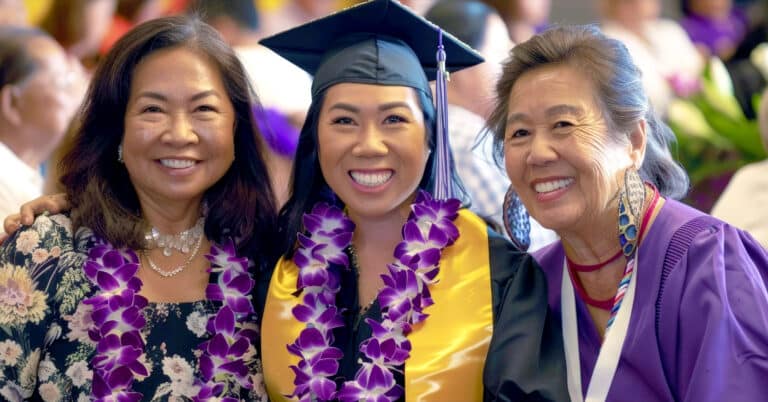It’s 2022 and education policymakers are still wrestling with the effects of an international pandemic on our K-12 school system. Past and current shortcomings are glaring, and parents are desperate for a magical solution that will ensure their children receive quality – and uninterrupted – instruction again.
At the same time, more than $280 billion in federal relief is flowing into communities with the promise of reopened schools and strategies to address “learning loss.” Will these resources emphasize a return to normal? Or will policymakers and educators aim for something bolder that promises to dismantle the shortcomings of the past?
A few promising signs suggest there is potential for a bolder approach. The U.S. Department of Education’s COVID-19 Handbook: Roadmap to Reopening Safely and Meeting All Students’ Needs, for example, encourages educators to focus on acceleration and enrichment instead of tracking and remediation to help students master gaps in pre-requisite knowledge and skills. This distinction between acceleration and tracking, supported by new research, should be on every policymaker’s mind as they design strategies for COVID recovery.
Imagining new education systems – without tracking
What if the education system stopped tracking and sorting kids into different programs based on perceived ability, but rather emphasized transparent learning outcomes and targeted supports to ensure every student is challenged and benefits from the perspectives and knowledge of their peers? And what if we didn’t have to prioritize investments for desegregating schools — such as the $100 million proposal in President Biden’s first budget — because we had the foresight to create diverse and inclusive learning environments in the first place?

It’s time to start making decisions that benefit each child – not just our own. Imagine liberatory education futures through four stories.
Learn more >>
Policy conversations about tracking are far from new. Concerned families have long battled over the appropriateness, accessibility and exclusion built into various tracks like honors, gifted and talented, and AP/IB programs. Many have asked:
- Why are some children chosen for those opportunities while others are not?
- Which criteria, measures and processes are we using and trusting to make those determinations?
- Who most and least benefits from the separate tracks we then build?
The answers to these questions are highly contentious precisely because they’re so vital to students’ life trajectories, families and communities. All parents want to know that their child will be challenged and supported to achieve at the highest levels, but it turns out we do not need labels, ranks and sorting procedures to accomplish this. Personalized, competency-based approaches can, will and already do shift systems and classrooms away from tracking. Policy conversations will need to make similar shifts to embrace this possibility and honor the commitment we made as a country in the 1954 Brown vs. Board of Education decision when the Supreme Court determined “separate is not equal.”
Sadly, the COVID-19 pandemic will likely degrade these policy conversations. Families who benefited from job flexibility, resources to enhance or supplement their children’s virtual school experience and the stability to shield their children from the many traumas associated with the pandemic will seek increasingly rigorous learning experiences to meet their children’s academic needs – experiences that have historically driven greater levels of segregation.
At the same time, the school system, and its resources, must focus on the needs of students most impacted by the pandemic due to inequities, including employment, childcare, health care, transportation, broadband access and housing. The impact of these very different lived experiences will be striking, and the political pressure to separate the children in these groups will heighten.
Explore a series of 13 comparisons to demonstrate how tracking can and should be replaced with personalized, competency-based learning.
Learn more >>
Fortunately, there is a policy solution that would benefit every student while avoiding the pitfalls and harms of tracking. The prioritization of student-centered learning approaches like personalized, competency-based learning would empower educators to create dynamic and challenging learning pathways that ensure every student masters the knowledge and skills essential for success. These approaches enable educators to accurately assess individual student needs and to use time differently to offer accelerated learning supports or opportunities to explore deeper levels of mastery. Leading research supports these approaches, including these K-12 school design principles created by the Learning Policy Institute and based on the science of learning and development. The Rich Learning Experiences and Knowledge Development principle is particularly relevant as we consider the necessity to design engaging, challenging and inclusive learning environments.
Recommended actions for state and local policymakers
To build more student-centered learning environments and begin to dismantle tracking, we recommend state and local policymakers consider the following actions:
- Incentivize personalized and competency-based learning models that center equity and rethink seat-time and student engagement through innovation zones, waiver opportunities and educator learning networks. Create a learning agenda that emphasizes detracking and supports the growth of “acceleration and enrichment for all” models across schools, districts and the state.
- Establish a transparent, competency-based learning framework and empower educators, employers and community members to design rigorous, interest-based pathways that students can access and move between to demonstrate mastery of competencies. Ensure that these pathways provide rigorous learning experiences for all students and eliminate separate tracks for historically underserved students.
- Invest in formative and performance-based assessments that help educators target learning supports and evaluate deep mastery of knowledge and skills. Supply professional development and technical assistance so educators and administrators use such assessments to build learning communities distinguished by their inclusivity and high expectations.
- Center personalized and competency-based practices in leadership and educator development, focusing on strategies to elevate student voice, enhance students’ interests and assets, differentiate instruction and build cultural competence.
- Support school communities in identifying and using new accountability metrics that measure a broader definition of student success.
These strategies will enable policymakers to listen and respond productively to parents’ concerns about tracking, rebuild America’s trust in the school system and expand our vision of what is possible. Rather than pit families against each other, we need leaders to demonstrate how we can inspire all students to achieve excellence. The models for doing this are already being implemented, and the policies that drive them are in place across the nation. Let’s reject the shortcomings of our past and build a system that works for every student.
Learn more about how 14 states are continuing to make progress in rethinking system accountability and K-12 assessment systems.





